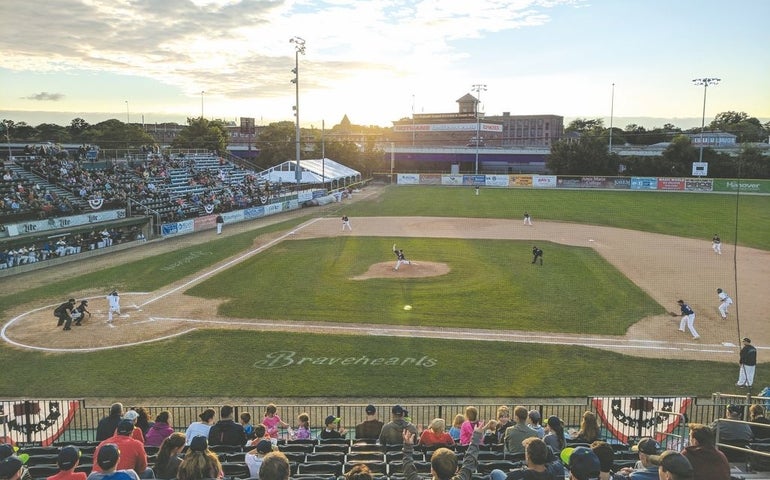Discover Central Massachusetts has a straightforward mission: get visitors to eat, shop, stay or hold meetings in any of the 35 communities in the middle part of the state.
But of all those communities, only one donates to the agency’s cause: Worcester.
The state’s second largest city contributes most of the budget for DCM while other communities have put the agency in an unusual position: having to prove its worth to its own member cities and towns, including many whose chief officials serve on its board.
At least several communities want to see data support a return on investment for something that’s hard to qualify. After all, who knows for sure how many people are eating at a restaurant, staying at a hotel or visiting an attraction because of the tourism agency?
At the same time, the region appears to suffer from a lack of cohesion. Blackstone, on the Rhode Island border in the southeastern part of the agency’s district, has little in common with Hardwick to the west, or Sturbridge with Worcester.
“There isn’t really a shared profile,” said Matthias Waschek, the director of the Worcester Art Museum, who serves on DCM’s board. Despite what he called a lack of homogeneity, “that doesn’t mean at all that it’s a lost battle.”
$500K from Worcester, $0 from the rest
Despite the name, DCM doesn’t cover the entire region. Princeton, Sterling and communities to the north are part of the Johnny Appleseed Trail Association.
DCM was formed just two years ago this summer, a successor of sorts to both Destination Worcester and the Central Massachusetts Convention & Visitors Bureau.
Destination Worcester, an agency marketed the city to tourists, was formed in 2007 by then-City Manager Michael O’Brien as he pulled the city’s funding from the convention and visitors bureau, which itself suffered from a lack of financial support.
Worcester gives $500,000 a year the DCM. The organization’s individual members, such as hotels and tourist destinations, total only about $50,000 in funding a year on average, said DCM President Christina Andreoli. The only other financial support DCM receives is from the state, which last year was $200,000, but cut to $98,000 mid-year.
Andreoli was asked about those funding challenges at a June meeting with the Worcester City Council’s economic development committee. Councilor George Russell asked her why Auburn or Sturbridge don’t contribute.
“They want to see data” to show why the agency is worth the funding, Andreoli said. “To be quite frank, we need them right now.”
Until then, DCM is directing much of its efforts to the city that covers a large share of its bills.
“We’re probably not going to be focusing them on the areas of Sturbridge and Auburn until those types of relationships are formed,” Andreoli said.
Otherwise, the agency plays up all areas of its district, such as having special pages on its website for five areas: the 395 Corridor, Blackstone Valley, Sturbridge Townships, Wachusett and Worcester.
Russell called the arrangement unfair, and said towns shouldn’t have memberships on the agency’s board of directors unless they give financial support.
“I’m just so disappointed that those towns don’t give anything,” he said.
Proving DCM’s value
The towns didn’t say no to a specific request for money, Andreoli made clear.
“They are open to discussion and data-driven research,” added Andreoli, who is also the executive vice president of the Worcester Regional Chamber of Commerce, with which the tourism agency shares bookkeeping, payroll and other work to save on costs.
The top officials in both Auburn and Sturbridge serve on DCM’s board. In charge of communities with limited budgets, they need to be convinced funding is worth it.
“It’s a conversation that should be held when we’re able to have that kind of data,” said Julie Jacobson, the Auburn town manager. “But lacking that kind of data, it’s almost impossible to have that kind of discussion about funding.”
In the southwest corner of DCM’s zone, Sturbridge has long taken it upon itself to market the town, said Leon Gaumond, the Sturbridge town administrator. He suggested individual members such as hotels could have more of a responsibility to support the tourism agency but added all the communities would benefit by working together to bring tourists to the region.
Losing state funding
The Johnny Appleseed Trail Association, based in Fitchburg, is in a similar situation as its counterpart, collecting funds from just a few core communities that have hotels: Fitchburg, Gardner, Leominster and Westminster.
“It’s just a smart business move,” Johnny Appleseed’s president and CEO, Roy Nascimento, said of such towns contributing to tourism efforts. “People understand they have to work together to have a stronger impact.”
While they work to win over their member communities, DCM, the Johnny Appleseed Trail Association and the 14 other regional tourism councils have to work with less support from the state. Funding has been cut in each of the last two years. Last year, the 15 tourism councils started the year thinking they had $6 million to split, but that funding was dropped to $3 million after state budget cuts.
For DCM, that meant dropping a restaurant marketing program Andreoli envisioned, among other efforts. Johnny Appleseed eliminated a planned sales mission to Canada and an effort with other councils to market specifically to the travel media.

